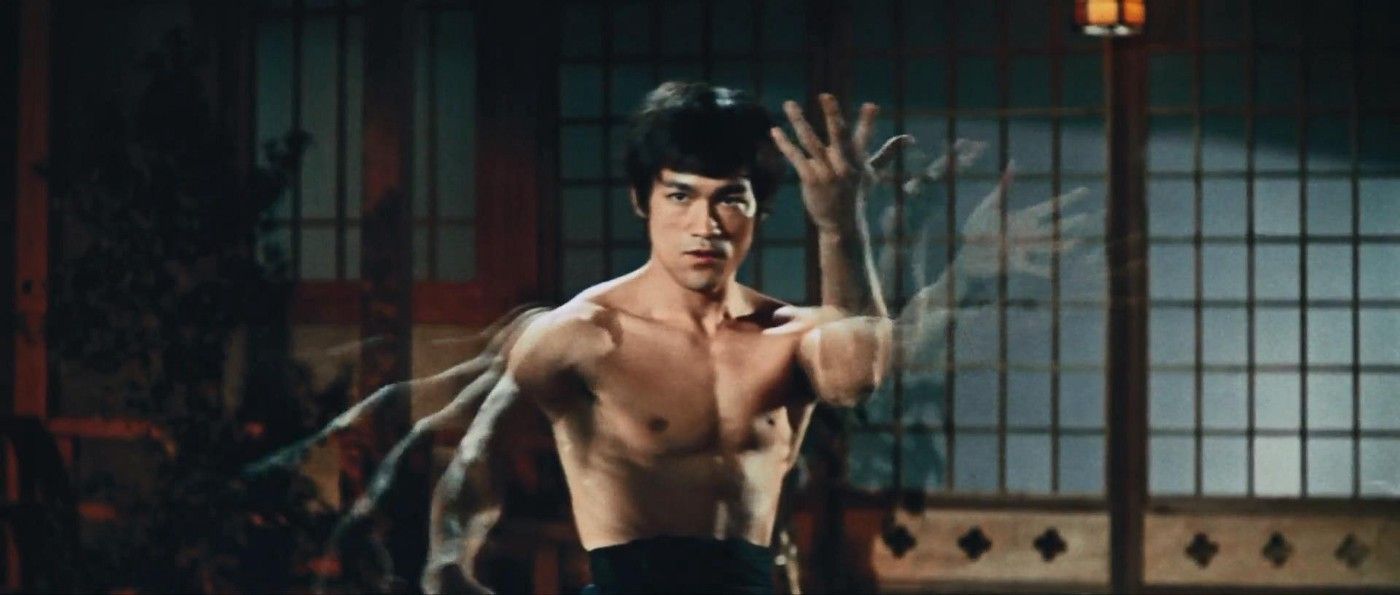Bruce Lee Capsule Reviews

The Big Boss (1971) — June 28, 2013
Bruce Lee may be the most narcissistic movie star of all-time, but you can’t help but be entranced by him — he’s just as magnetic as he thinks he is.
Immigrant workers in a foreign country, exploited by a rapacious capitalist as drug dealer. Takes forever for Bruce to realize that maybe his boss is lying to him. But once he does, everyone dies.
Fist of Fury (1972) — May 2, 2014
Amazing how simple the plot of Fist of Fury is in comparison with Gordon Chan’s Jet Li-starring remake Fist of Legend. Bruce Lee’s Chen Zhen is nothing more or less than a force of nature, bursting on screen in agonized grief, progressing from there through an agonized murderous rampage (in 1930s Shanghai he returns to find his master has been killed; he learns it was by the Japanese, he kills them). Only occasionally is he allowed to express anything other than agony: when he adopts disguises to spy on the Japanese or in his one romantic scene with Nora Miao. Otherwise he may as well be The Hulk. No depth, no complexity (compare Li’s Chen Zhen, torn between two cultures and two families, genuinely mixed in his sympathies), simply the pure muscular expression of violent revolution, of the (racial) underclass rising up against their (apparently motiveless?) oppressors.
There are hints at self-awareness, of nuance: the fact that so many of Lee’s fellow Chinese feel the effects of his violence, the collateral damage of his rampage, is felt. And the tortured expressions, often in slow motion, that take over Lee’s face when he administers a killing blow convey not the orgasmic release of violence, but the corruption of the mind and soul that each act of destruction takes on him (compare to the distancing puns and wisecracks that accompany such displays in the 80s films of Schwarzenegger and Stallone). Still, it’s not hard at all to see why it was a hit, despite the acting, screenplay, sets, direction, characters, sound design, etc, all cheap and chintzy relative to the films the Shaw Brothers were putting out at the same time. Even another Golden Harvest production like Hapkido, with a very similar Chinese vs. Japanese premise, released six months later in 1972, looks better and had more thought put into its visual style.
Be Water (Bao Nguyen, 2020) – June 10, 2020
Some of the archival footage is neat, and I suppose it's nice to have the Lee family's version of the Bruce Lee story all in one neatly cropped-and-zoomed place. But there's nothing new here and it doesn't really seem all that interested in exploring his impact on film and culture outside of America or really outside of the people that knew him personally.
